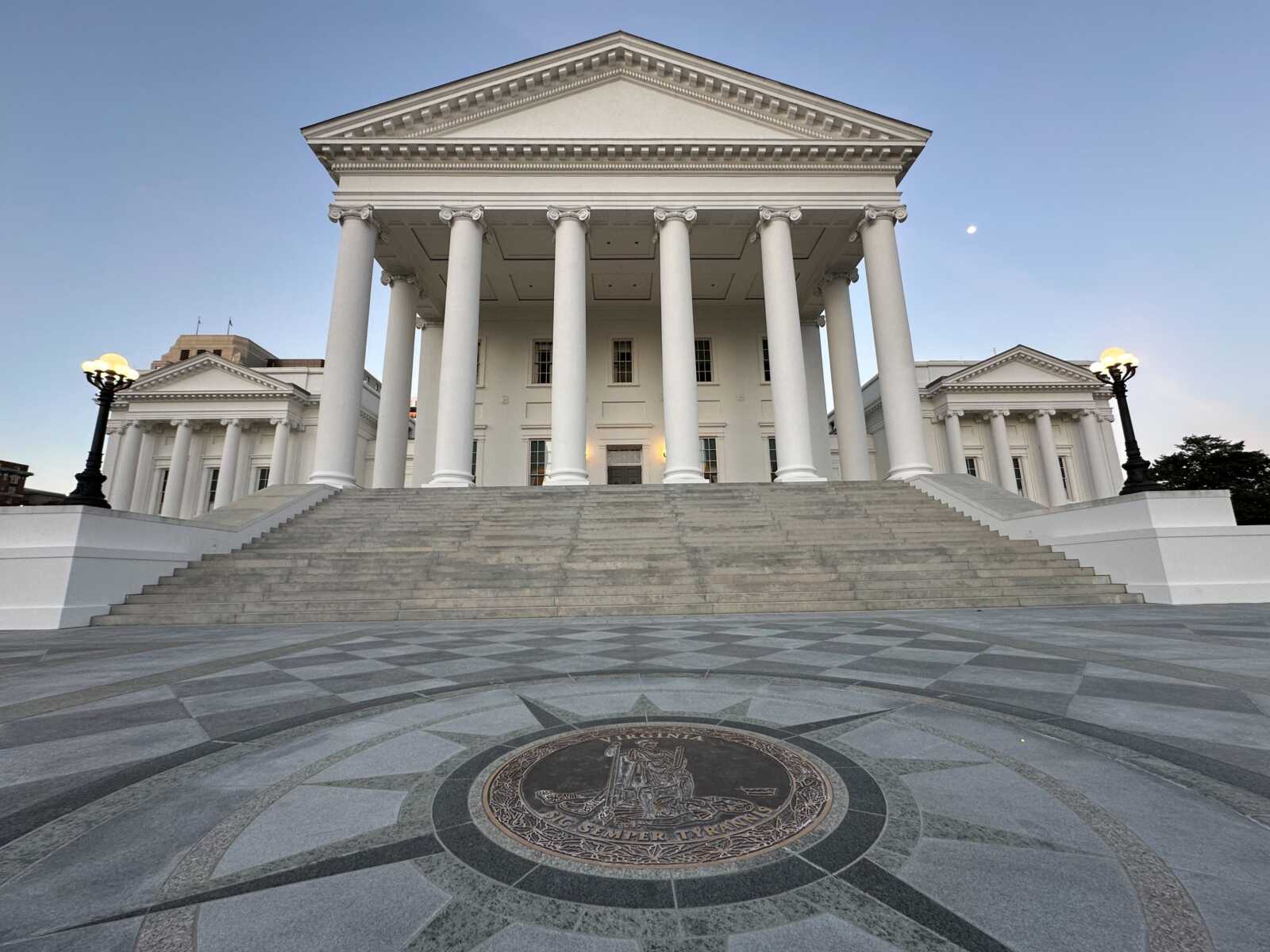
Arlington’s Virginia General Assembly representatives notched several preliminary victories this legislative session.
The state House and Senate are now in “crossover” — where bills that started in the House are considered by the Senate and vice versa. Bills that pass both chambers will be sent to Gov. Glenn Youngkin (R), who will either pass them into law or veto them.
Dels. Patrick Hope and Alfonso Lopez (D) received support for their bills regulating the sale of electronic tobacco products.
Hope’s bill taxes the sale of these products, which include vape pens, requires retailers to check the IDs of anyone under the age of 30 and requires businesses that sell electronic tobacco products to have a permit. The permit, he previously told ARLnow, allows the state to track sellers and enforce sales to minors through the imposition of fines and by suspending or ultimately revoking the permit.
Lopez’s bill allows localities to regulate the sale of tobacco and hemp products within 1,000 feet of a day care center or any school, an issue Arlington Public Schools championed.
The House also greenlit the state to provide “model guidance” to local School Boards on how to include a student representative, which is based on, but departs from, Lopez’s initial bill requiring boards to establish a method for selecting a student representative. The idea behind the bill, reprised from last year, had support from Arlington School Board hopefuls and students but lukewarm response from the Board.
Notably, Hope’s bill allowing Arlington to consider some changes to its form of government was passed over until 2025. The bill would have given the Arlington County Board the same powers as other jurisdictions to consider changing its size and moving to district-based representation.
He previously told ARLnow that he had intended to bring it forward in 2023 but delayed this one year on the promise of greater public engagement. Arlington County, meanwhile, successfully lobbied to punt the bill one more year so discussions could be wrapped into public engagement on the 2050 visioning process, which kicked off earlier this month.
Arlington’s newest delegate, Adele McClure (D), also received bipartisan support for her bill intended to prevent abrupt displacement — or at least ease the process of finding new housing — when apartment residents face lease termination after a fire or other incident.
ARLnow reported on the apartment fire in Crystal City that inspired her to draft the legislation, which cleared the House with a 69-29 vote. In the aftermath of a boiler-room fire, 68 residents of the Crystal Plaza apartments were given 14 days — the minimum required by law — to find new housing.
McClure’s bill increases the minimum to 21 days and requires property owners to take extra steps before terminating a lease, including meeting with tenants to discuss the extent of the damage and offer “reasonable alternatives” to vacating, including moving into other vacant units within the complex.
With Democratic majorities in the House and Senate, Sen. Barbara Favola (D) reprised one abortion-related bill and introduced another. SB 16, which protects menstrual health data from search warrants, passed the Democratic-controlled Senate in 2023 but did not clear the Republican-controlled House. Her 2024 bill narrowly passed the Senate by a 22-18 margin.
Favola also netted a party-line victory for SB 15, which prohibits the governor from approving extraditions if the alleged charge involves receiving, providing or assisting with “reproductive health care services.”
Amid the much-discussed “fiscal cliff” Metro is facing, and slow recovery for Virginia Railway Express, the Senate verbally agreed to Sen. Adam Ebbin’s (D) bill establishing a joint subcommittee to study “long-term, sustainable, dedicated funding and cost-containment controls and strategies” for WMATA, VRE and transit systems serving Northern Virginia and the Potomac and Rappahannock districts.
Arlington-originated gun safety bills had more mixed results.
The House of Delegates narrowly passed (52-47) a bill from Hope broadening who cannot purchase, possess or transport a firearm. Currently, it’s a misdemeanor for people convicted of assault and battery, assault and battery of a family or household member, or stalking to buy, have or transport a gun less than three years after their conviction.
If passed in the Senate, anyone who purchases, possesses or transports a firearm within five years of a misdemeanor conviction after July 1, 2024 — other than an assault and battery or stalking or a “substantially similar” offense — is also guilty of a misdemeanor.
For the second time, a gun safety bill from Favola did not make it out of committee. It would have required people to be at least 21 years old and to live under a different roof in order to accept guns from someone legally required to surrender them for being convicted of assaulting a family member or being under a protective order.
Hope’s bill permitting physician assisted suicide failed to pass in the House. Under it, an adult diagnosed with a terminal condition would have been able to obtain from a healthcare provider a self-administered controlled substance inducing death. Patients would have had to give the request orally, more than once, and in writing, with a witness’s signature.
Ebbin’s bill adding definitions and examples of careless and distracted driving, including speeding, adjusting the radio, and eating or drinking, to existing state law did not leave committee. Currently, Virginia law only states that it is a Class 1 misdemeanor — which comes with fines or up to a year in prison, or both — to operate a car “in a careless or distracted manner” if that results in serious injury to or kills a pedestrian.

